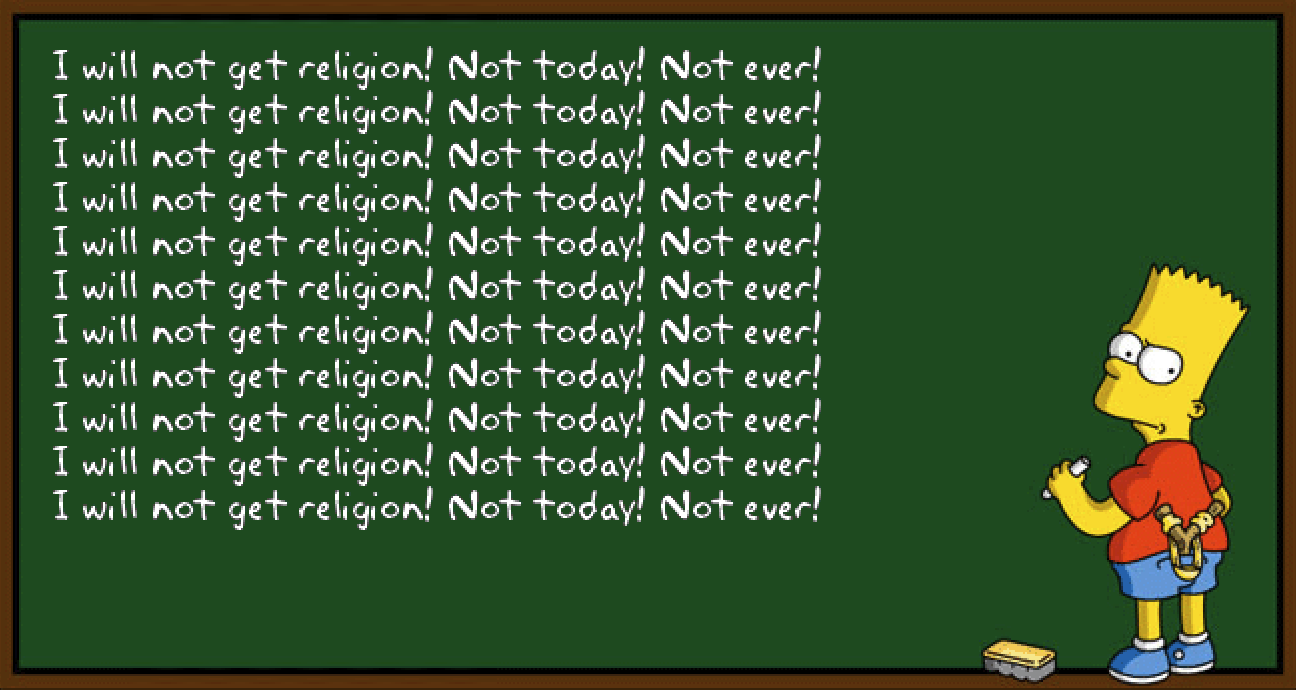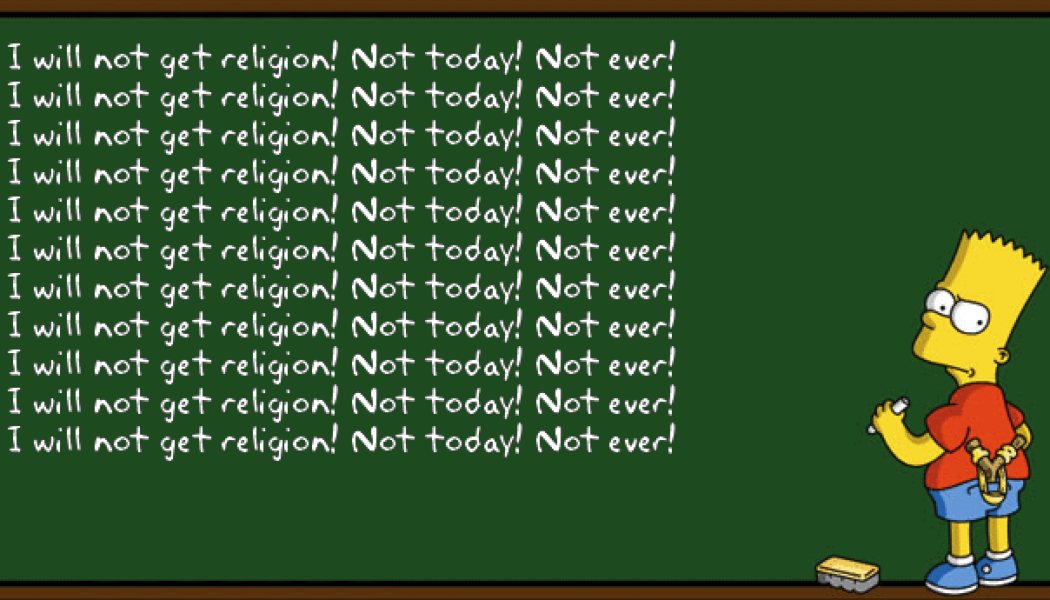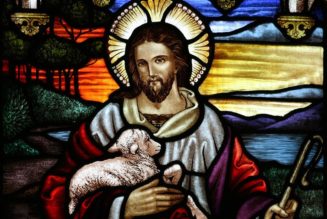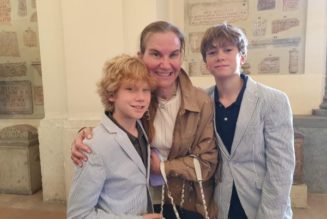

Long ago, there was this radio and television superstar named Art Linkletter.
How long ago? Well, I thought of him as an old guy when I was a kid. In particular, I remember chatter about his bestseller — 50-plus years ago — with this title: “Kids Say the Darndest Things.” The idea was to collect things that children say that sound cute or even silly but, the more you think about them, these statements turn out to offer insights into life as we know it.
Why bring this up? Every now and then — once a month, maybe — I get an email from a reader offering a link to something strange that ran somewhere in a mainstream news or commentary publication (readers struggle to discern the difference, these days).
Often, the reader shares the material and then asks something like: “Are journalists really this stupid?” or “Do journalists really hate ________ this much?” The blank space in that equation will be filled with one of several different terms, such as “religious people,” “conservative Christians,” “traditional Catholics” or something else.
The link to Art Linkletter is that, from time to time, a reader — either wise, patient or cynical — will suggest that a specific example of journalists failing to “get religion” could simply be worth a chuckle, kind of a “Journalists Say the Darndest Things” take. But some readers will then pause and wonder if there is something else going on.
This brings us a recent feature at NJ.com that ran with the headline, “Ash Wednesday 2023: Can you eat eggs or meat? Can you drink coffee? A guide to fasting.” This website connects the work of several news organizations, such as The (Newark) Star-Ledger, The Times of Trenton, The South Jersey Times, etc. Here is the overture for this “news you can use” story:
On Ash Wednesday, you might see a Christian or a Catholic wearing smudged ashes on their forehead.
Maybe you are a practicing Christian and are fasting this Ash Wednesday, and you are wondering what you can and cannot eat on the first day of Lent. Here is what you need to know about this first day of Lent in most Christian denominations and the rules of fasting.
Read that first sentence again. The reader who sent this to me wanted to know what this reporter (or the editor who handled the copy) meant when using this phrase — “you might see a Christian or a Catholic.”
Wait a minute. Catholics aren’t “Christians”?
Was this just a silly mistake or evidence of that something else was going on?
Here’s some commentary from the GetReligion reader who sent me an email about this.
Had I not known differently, I might have thought that “Christian” and “Catholics” were two distinct things rather than the latter being a subset of the former. In other words, I might have inferred that Catholics were not Christians.
If you wanted to highlight the use of ashes by Catholics, would it not have been better to say “you might see some Christians, including many Catholics, wearing smudged ashes . …”? Alternatively, it would have been clearer to write “you might see some Christians wearing smudged ashes . …” Of course, you and I know it would have been even more precise to add the word “Western” before the word Christian, but that would take real knowledge of differences among Christians.
For what it is worth, I attribute the language used in the article to sloppy thinking/writing rather than any malicious intent by the author.
Amen to that last thought. I wrote back to note that the ongoing financial crisis in most newsrooms — linked to the world of Big Tech sucking up the vast majority of advertising dollars — has stripped many newsrooms of dedicated copy desks staffed by careful, thoughtful editors who try to prevent this kind of thing. Internet-speed journalism without copy editors is dangerous work.
In other words, it’s unlikely that this was a case of “Journalists Say the Darndest Things.” I was probably just a minor trainwreck by a reporter with zero religion-beat experience and/or a rushed, overworked copy desk missing what is a rather offensive statement, if readers stop and think about it.
Then again, one can also find a Britannica headline that states: “What is the difference between Christianity and Roman Catholicism?” The copy of that article does, thank goodness, note:
Christianity is an important world religion that stems from the life, teachings, and death of Jesus. Roman Catholicism is the largest of the three major branches of Christianity. Thus, all Roman Catholics are Christian, but not all Christians are Roman Catholic.
Readers who, after spewing their morning beverage onto their computer keyboards or smartphones, keep reading the NJ.com feature in question will find other evidence of casual or even muddled thinking about the season of Lent, which has arrived for both Western and Eastern Christians.
Ash Wednesday in the Christian church is the beginning of the Lenten season. It takes place six and a half weeks before Easter Sunday. …
Catholics and some protestants, including Anglicans and Lutherans, also hold Ash Wednesday services.
Eastern Orthodox churches do not follow this schedule because they begin Lent on a Monday, and therefore, do not observe Ash Wednesday.
Note the subtle clash between saying that “Ash Wednesday in the Christian church” is the start of Lent and then turning around and saying that “some” Protestants observe this tradition, which kind of suggests that there are lots of other Protestants who are not in “the Christian church.” There are, of course, millions and millions of Protestants in churches, denominational and nondenominational, that do not observe Lent — period. Others have created their own version of Lent that has little or nothing to do with centuries of tradition in the Christian East or West.
Oh, and Eastern Orthodox Christians (I raise my hand) don’t observe Ash Wednesday because Eastern Christian churches have a different ancient tradition — the Forgiveness Vespers service (this took place yesterday on the ancient Julian calendar). In this rite, each member of the congregation — face to face — asks each other person present, one after another, to forgive them for sins or offenses they may have committed during the previous year. This takes time and it’s a sobering way to start the Lenten journey to Pascha (Easter).
So, careful readers, what else to you see in that NJ.com feature that is worth discussing?
Be kind. Journalists do, from time to time, publish the darndest things.
FIRST IMAGE: Uncredited graphic from the “The Difference Between Catholic and Christian” feature at the ScriptureCatholic.com website.









